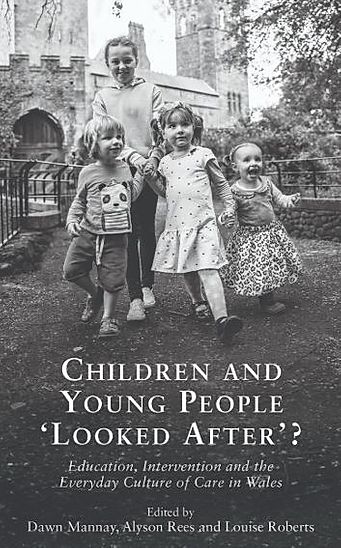This chapter summary is from the book Children and Young People ‘Looked After’? Education, Intervention and the Everyday Culture of Care in Wales.
This chapter sits within ‘The culture of care and the everyday lives of children and young people’ second substantive section of the book. The chapter draws on an in-depth, small scale study of ten experienced foster care families in Wales who were providing stability for young people. This chapter focuses on the experiences of the children living in those foster care homes (nine of the children were in foster care and one child had been fostered and adopted by the family). The study used creative methods to engage with children including, drawing, eco maps, written and audio diaries in addition to individual interviews. The analysis of the study took a sociological approach and as a result focuses on family practices and the often taken for granted aspects of daily life in foster care, with specific attention being paid to the body, touch and food. Positive touch was seen as significant for children as part of everyday child development, and as a source of reassurance and comfort. Many children had not experienced positive touch in the past, especially in the context of a very risk averse social care environment. The hug and the cwtch cannot be undervalued. Food too was seen as a vital aspect of nurturing. Children’s food preferences and ‘personae’ were catered for and responded to. The daily, family cooked meal, eaten together symbolised care for the child, reciprocity and reinforced a sense of family belonging. These mundane areas have received little research focus in the past but may form part of the ‘glue’ that helps to create stability and support for the child.

Chapter 7
This is the first in a blog series relating to the recently released book “Children and Young People ‘Looked After’? Education, Intervention and the Everyday Culture of Care in Wales”. Read the other blogs in this series:

